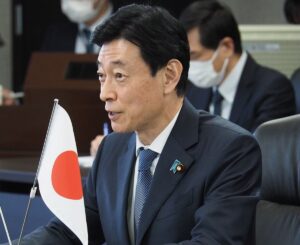On July 4, Japan’s Tokyo Metropolitan Assembly election took place. Even though the ruling Liberal Democratic Party (LDP) won the biggest number of seats – 33 out of 127 seats – and Komeito retained 23 seats, the LDP-Komeito ruling coalition fell short of winning the majority in the Tokyo Metropolitan Assembly.
As the biggest local assembly in Japan, with a total annual budget of over 15 trillion yen (approximately $135 million) when everything is counted, the result of Tokyo Metropolitan Assembly election has often been seen as a prelude to the next national election. Given that the House of Representatives (the lower house of the Japanese Diet) will be holding an election by early September at the latest, the ruling coalition’s failure to win a majority in Tokyo’s legislature has begun to stir up the question of whether Prime Minister Suga Yoshihide is the right “face for the election” for the LDP in the upcoming poll.
The ruling coalition’s failure to win the majority in the Tokyo Metropolitan Assembly is attributed to two main factors: the central government’s handling of the COVID-19 vaccine rollout and the government’s decision to move forward with the Summer Olympic and Paralympic Games despite rising public concern about the virus’ spread, particularly given the recent rise in cases of the Delta variant. In both cases, the government’s lack of transparency in decision-making or clear and decisive messaging on their decisions aggravated public dissatisfaction.
When looking more closely into the election results, however, a more complex picture emerges. Even though the LDP-Komeito ruling coalition failed to capture the majority, the LDP alone managed to win more seats than Tomin First no Kai (Tokyoites First), the party that backs the incumbent Governor Koike Yuriko. Tomin First took just 31 seats, losing 15 compared to its previous position. This means that the LDP-Komeito coalition continues to hold considerable veto power in the Tokyo Metropolitan Assembly, which Koike now has to take into consideration. In short, even though the election results from last weekend may be a loss for the national ruling coalition, its impact may not be as bad as has been discussed.
Read the full article in The Diplomat.




